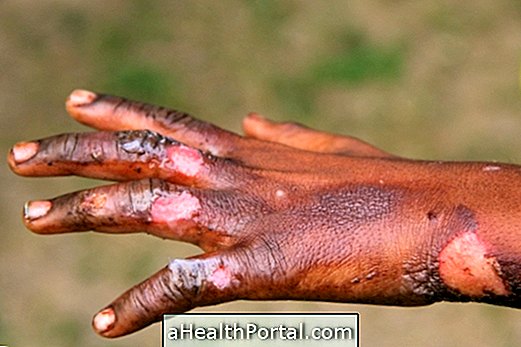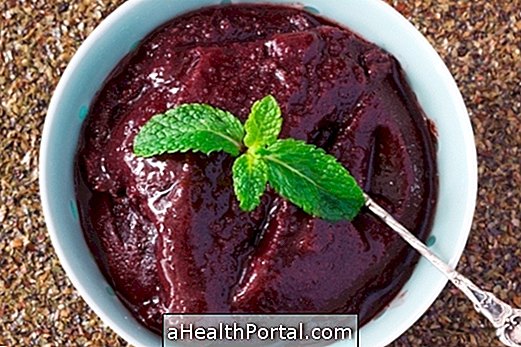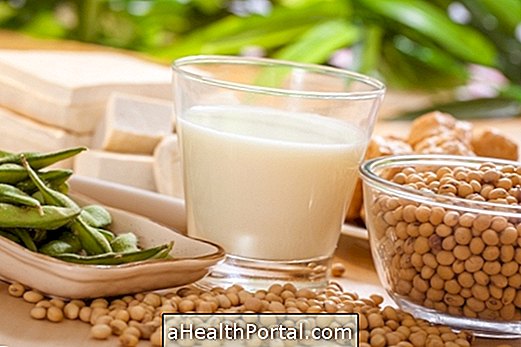The noni fruit, whose scientific name is Morinda citrifolia, is a fruit of Thai origin, and widely consumed in countries like Polynesia, Tahiti, Malaysia and China because of its medicinal and therapeutic properties.
However, this fruit may be difficult to find in Brazil, especially in the form of fresh fruit, and the easiest to find versions are the industrialized ones, which are not approved by ANVISA - National Health Surveillance Agency.

Possible benefits
The main properties present in the noni fruit that are supposed to bring health benefits include:
- Vitamin C and other natural antioxidants, which fight against aging and chronic diseases;
- Polyphenols, or phenolic compounds, with potential antibiotic, antiallergic and anti-inflammatory effect;
- Carbohydrates and proteins, important sources of energy;
- Beta-carotene and vitamin A, which help produce collagen, being beneficial to the skin, hair and nails, as well as help strengthen the immune system and protect vision;
- Minerals such as calcium, magnesium, potassium, iron and phosphorus, important for body metabolism;
- Other phytonutrients such as vitamins B1, B2, B3, B5, B6, B12, C, E and folic acid, which reduce free radicals and regulate body metabolism.
Despite the potential of bringing these various benefits, noni fruit is not approved by ANVISA, such as food, juice or any kind of food supplement. This is because there are still not enough scientific studies to prove these benefits, the proper dose, its contraindications, and especially since several studies have shown that consumption of noni fruit juice causes serious problems in the liver due to its toxicity.
What are the harms
It was observed that several people developed acute hepatitis after consumption of noni fruit. This situation can be serious, and may cause the need for liver transplantation and, even, death risk.
This side effect was most observed in people who consumed on average 1 to 2 liters of noni juice over a period of approximately 4 weeks, but for safety reasons it is not recommended to consume this fruit in any quantity.
Does noni fruit fight cancer?
It is believed that noni fruit can cure many diseases, including cancer, depression, allergies and diabetes, but their use is not safe and can put their health at risk, and therefore their consumption is not recommended until there are evidence of its safety and efficacy, with tests performed in humans.
At this time a substance called damnacanthal, a compound extracted from the roots of noni, is being studied in several researches against cancer, but still without satisfactory results.
Does noni fruit thin?
Despite the frequent reports that noni fruit helps weight loss, it is still not possible to state this information, as more scientific studies are needed to prove this effect and the effective dose to achieve it. In addition, it is normal to have a rapid weight loss when the body is sick, and is more likely to lose weight due to Noni consumption, not for the expected reasons but for the development of liver diseases.
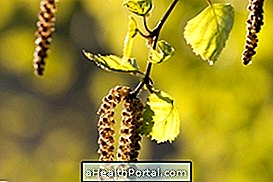


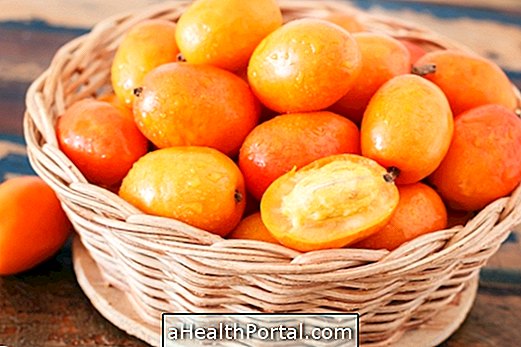
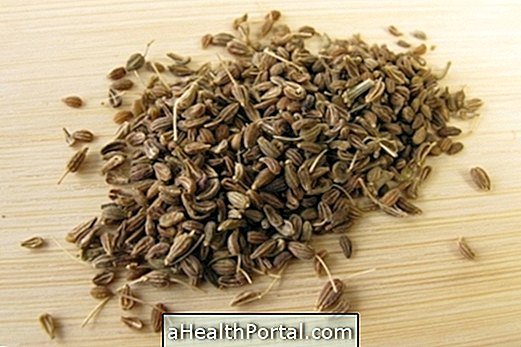




-o-que--sintomas-transmisso-e-tratamento.jpg)






